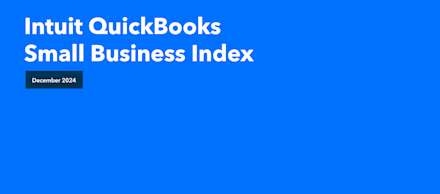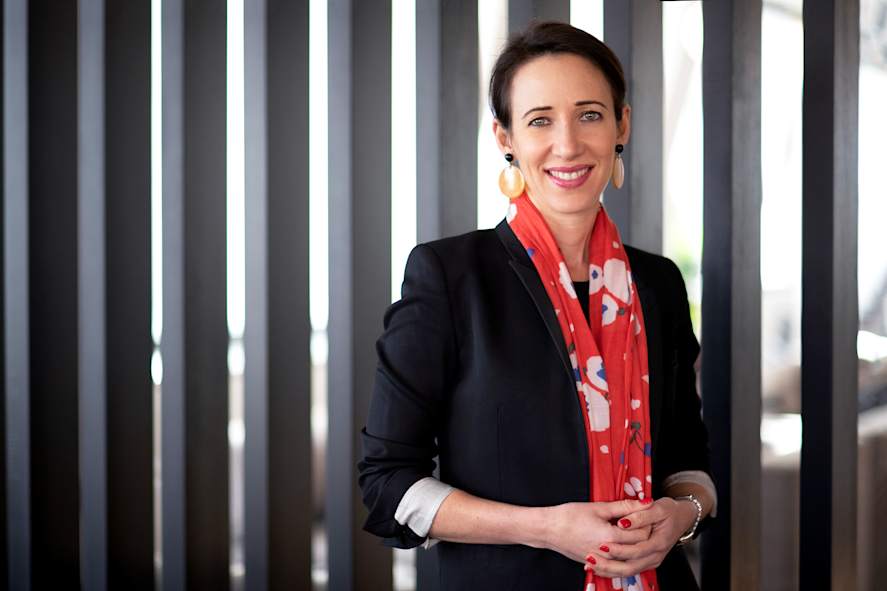
Intuit QuickBooks Small Business Index, December 2024
Simple, smart accounting software - no commitment, cancel anytime

MOST ADAPTIVE BUSINESS
Emma Serlin and her team of coaches at the London Speech Workshop are dedicated to empowering people from all walks of life to be more confident and effective communicators. When the coronavirus hit in March 2020, the small business had to find an alternative to face-to-face coaching. “When life gives you lemons, make lemonade”, is Emma’s motto - and lemonade she made!
Due to their dedication to adapting their business culture, leadership and product offering to the changing circumstances caused by the coronavirus pandemic of 2020, London Speech Workshop was nominated as one of the Most Adaptive Small Businesses of 2020.
Thank you, it’s great to be recognised! Here at London Speech Workshop we offer communication courses that help people be more authentic, kind and empowered communicators in every area. We work with our clients providing tools for effective communication, from presentation skills to gravitas and authority to rapport building. We also work with non-native speakers who feel like their accent is getting in the way of their goals and progress, and we support them to develop a mastery over the language, so - accent or no accent - when they speak they are brilliant communicators in English.
“Our aim is to support people to be confident and empowered communicators in English, and to get rid of all the blocks that are in the way of achieving that.”
For the past 12 years, we’ve mostly provided one-to-one coaching and bespoke courses for companies. Our main areas of focus are:
Accent softening - These courses help non-native speakers communicate more clearly and confidently, improving the sounds and intonation of their spoken English. Contrary to what the name might imply, we’re not actually helping people to get rid of their accent - that forms part of your personality! What we do care about, though, is helping to correct any pronunciation issues so that they don’t get in the way of effective communication. That is, end the end, what it’s all about: empowered communication.
Effective communication - Our effective communication courses provide simple tools for empowered, authentic, powerful and kind communication. It’s all about creating connection and engagement with your audience by working on your delivery, sound, body language and content. In these courses, we also delve into people’s personal values, their authenticity and their reason for speaking. We provide coaching for communicating in meetings, interrupting, giving feedback, active listening, building connection and authority. These are all tools that help people grow into the best communicator they can be.
Interview technique - These courses are all about making the right impression: walking into the room and owning the space. They help people understand what their value is and what their values are, and find synergy with the values of the company. The tools that we provide are very simple and accessible, but make an enormous impact. Our students get filmed before and after they learn a tool, so they can see the effects for themselves, which is very motivating and empowering.
Confident speaking for women - this is all about helping women build confidence, speak up in the boardroom and make use of their emotional intelligence. It teaches tools like playing small and big, vocal quality and presentation. I love this part of our offering and it benefits women greatly, especially in a professional environment.
Up until March 2020, we’d mostly done one-to-one coaching from our offices in central London or programmes for corporates in their office buildings. We’d never done much over Skype, and group courses had never worked out for us financially. But then, the pandemic hit.
It was in early March that my first coach said they didn’t feel comfortable coming in to work, and, of course, we took a warm and empathic approach to this. However, as the sheer scale of the situation unfolded, I realised it could become a real problem if none of my coaches wanted to meet face to face with their students anymore.
“When life gives you lemons, make lemonade - that’s my motto!”
Within seconds of thinking about it, I realised that this was a massive opportunity: we could now reach the whole world, as we were online! I drew up our masterclass packages and asked our Head of Marketing if we could market them internationally, targeting Dubai, Central Europe, America and beyond. I persuaded our client base to move onto Zoom - most people were up for it, and those who weren’t got refunds. As always, we wanted to prioritise kindness and service.
“We offered our client base a 20-minute free trial online - most of them loved it and more than 90% stayed with us.”
I think it’s been really great how the team has come together in the face of this adversity. Before the pandemic, I tried to do monthly team meetings but oftentimes my coaches wouldn’t show up. This time around, everyone turned up to our weekly morning meetings.
We would start with a sharing session which allowed people to open up about how they were doing in light of the circumstances - and there was a lot to deal with! Dying relatives, home schooling, Covid anxiety… One of our coaches got Covid early on and we sent her a feast to show our support; another colleague took the initiative to hold daily voice warm-ups every morning in April. Externally, we organised a free communication workshop for NHS staff.
“London Speech Workshop became a beacon of light to everybody.”
On the new business front, we started offering an accent softening group online course to the global market. I did some market research and put the programme together. Everyone thought I was mad for doing it - there was so much competition in the field of online courses at the time, and even the external marketers that I tried to recruit advised against the idea. In the end, I decided I was just going to market it myself together with Penny, our Head of Marketing.
We got 44 people to sign up to the first 10-week course - at that stage, we were creating the content week by week. After the first course, it became clear that we needed to move onto a proper platform instead of doing webinars. That went really well and our students were loving it.
“We now have a really strong e-learning platform that’s added a whole new revenue stream to our business model.”
In the light of all the change that was happening, I decided to do an Executive Leadership course. It challenged me to answer a set of questions about my business and leadership style each week, which gave me a lot of insight into my strengths and weaknesses. Off the back of it, I hired a consultant to do a strategic review of my business, which helped us raise our game once again.
A couple of weeks ago, I got some really rewarding praise from a colleague, who said they thought I “really pulled the team through, brought everyone together, held space, and took the company in an exciting new direction”. In moments like that, it feels great to be a small business owner.
We’ve hired and trained two more coaches this year, which means we now employ nine coaches on a freelance basis. We’ve also grown our head office team, hiring three new people, making us a team of seven - most of whom are on payroll. As we’ve put all our training material onto a dedicated platform, the coaching training is now much more efficient, which sets us up nicely for growth in the future.
In 2015 I started running a very detailed monthly management report that allowed me to gain a good view of how the business is performing. Forecasting has never been a strength of mine, but the report has really helped me out in these unpredictable times.
“The lowdown: we’ve grown our revenue by 45% this year.”
My background isn’t in business - I went to drama school, then used to work in TV and as a theatre director and producer. When I founded the London Speech Workshop, there was a lot of stuff that I had to figure out myself. Someone said to me once to divide my revenue as:
⅓ cost of sales
⅓ overhead
⅓ profit
That’s helped me ensure that our finances stay healthy.
What’s more, accumulating wealth in the bank has been really important to me. It’s allowed me to always be able to take small risks without worrying too much about making profit.
“When I see a change for growth or innovation, I always aim for turnover rather than profit - each time we’ve done that, we’ve grown massively.”
In January 2020 I wanted to aim for 100% growth - in October, we set an ambitious turnover target for November and hit it really easily. Even if you don’t have a sophisticated forecast, I recommend setting an exciting target that motivates your team.
If life gives you lemons, make lemonade. Life is all about perspective: if we focus on the great opportunity there is in adversity, we’re already halfway towards turning it into something positive.
And lastly: any good leader should make space for the personal. We should allow people to bring their whole self to the table. That’s the environment I’ve tried to create. That has supported our ability to grow.
QuickBooks: Making Accounting Easy
QuickBooks is the best accounting software for small businesses that want to keep reinventing themselves. Our simple and effective payroll software and cash flow insights can take care of your business finances for you, so you can focus on the important job of innovation.
9.00am - 5.30pm Monday - Thursday
9.00am - 4.30pm Friday